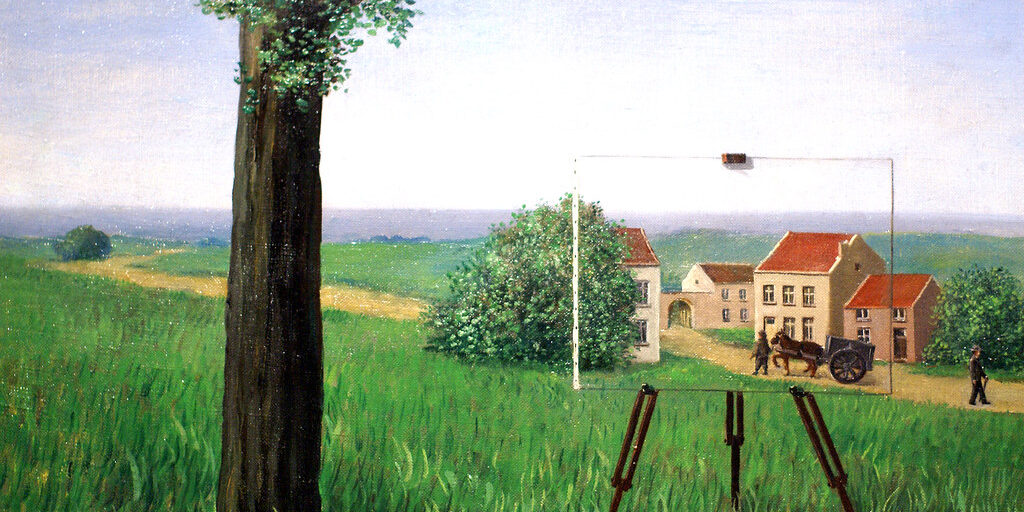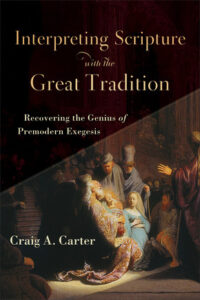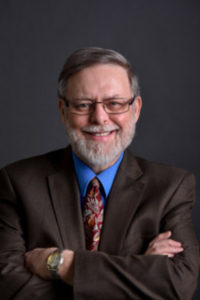
Methodological Naturalism and Divine Inspiration
A ccording to the confession of the Christian church, the Bible is an inspired book. This is the inescapable fact confronting anyone who wants to interpret the Bible. All agree that this is a religious text used for millennia by religious communities, first Jewish, then Jewish and Christian. But that tells us only that certain people and groups ascribed deep religious significance to these texts and claimed that the Bible is a Word from God in which God reveals himself to us and therefore is different from all other texts. But were they right in doing so? Should the interpreter start from the standpoint of faith that God has spoken in these texts, or should a conclusion as to the truth of this claim be part of the results of the interpreter’s investigations? In other words, is divine inspiration a necessary premise of good interpretation, or is it preferable to start with agnosticism on the question of the reality of inspiration? Would a presupposition of divine inspiration actually impede good interpretation? Would it be a good compromise to employ methodological naturalism in one’s interpretation until one becomes convinced that the texts of the Bible really are the Word of God—perhaps after the work of interpretation proper is finished? But if one begins with methodological naturalism, is it really possible to come to such a conclusion except by repudiating one’s starting point? How, exactly, does one change horses midstream? To the extent that it really is a starting point, does not repudiating it necessarily mean that one must start all over?By “metaphysical,” I actually do not mean anything radically different from what theologians traditionally have meant by the doctrines of creation and providence and by ideas such as miracle and inspiration. Click To Tweet
ccording to the confession of the Christian church, the Bible is an inspired book. This is the inescapable fact confronting anyone who wants to interpret the Bible. All agree that this is a religious text used for millennia by religious communities, first Jewish, then Jewish and Christian. But that tells us only that certain people and groups ascribed deep religious significance to these texts and claimed that the Bible is a Word from God in which God reveals himself to us and therefore is different from all other texts. But were they right in doing so? Should the interpreter start from the standpoint of faith that God has spoken in these texts, or should a conclusion as to the truth of this claim be part of the results of the interpreter’s investigations? In other words, is divine inspiration a necessary premise of good interpretation, or is it preferable to start with agnosticism on the question of the reality of inspiration? Would a presupposition of divine inspiration actually impede good interpretation? Would it be a good compromise to employ methodological naturalism in one’s interpretation until one becomes convinced that the texts of the Bible really are the Word of God—perhaps after the work of interpretation proper is finished? But if one begins with methodological naturalism, is it really possible to come to such a conclusion except by repudiating one’s starting point? How, exactly, does one change horses midstream? To the extent that it really is a starting point, does not repudiating it necessarily mean that one must start all over?By “metaphysical,” I actually do not mean anything radically different from what theologians traditionally have meant by the doctrines of creation and providence and by ideas such as miracle and inspiration. Click To Tweet
The question, then, is not whether the metaphysical starting point of interpretation potentially conditions the interpretation of the text. It seems clear, to me at least, that it does; I hope that the following chapters will convince any readers who may doubt the validity of this point. But the question I wish to raise is what actual effects metaphysics has had on biblical interpretation throughout history. I invite the reader to consider the possibility that metaphysical beliefs (or denials, which in their own way are just as significant as beliefs) form a context in which interpretation is carried out and that the results of interpretation cannot be separated from the metaphysical assumptions behind the method of interpretation. By “metaphysical,” I actually do not mean anything radically different from what theologians traditionally have meant by the doctrines of creation and providence and by ideas such as miracle and inspiration. I find it preferable to use the word “metaphysical” for two reasons. First, some views of theology in the modern world can speak of theological issues as if they did not intersect with history and nature. But I am talking about the way the world actually is, how God relates to the world, and, specifically, how God speaks to creatures. This kind of theology inevitably has metaphysical dimensions. Second, I wish to compare two sets of faith commitments; I choose to call them two sets of metaphysical beliefs, rather than two religions, simply because one does not recognize itself as a religion (even though I must confess that it looks like a religion to me).
The Metaphysics (or Religion) of the Enlightenment
The rationalistic faith of the Enlightenment has a view of God (Deism), revelation (general, not special), truth (known by reason alone), sin (Pelagianism), Christ (teacher of morality and example of love), atonement (via subjective theories only), salvation (through education and technology), the church (the scientific community), and eschatology (utopia on earth through progress). But most modern people who live their lives as though this set of beliefs were true dislike admitting that they follow a religion. They would rather it was a choice between religion and reason, which is why the myth of the warfare between science and religion was invented in the nineteenth century. It relieves them of the necessity of confronting the unpleasant fact that they have knelt before the altar of science and bowed to their god, just as surely as the despised Christians bow before the God of the Bible. But they are willing to affirm certain metaphysical doctrines, or at least they are always willing to admit to denying certain metaphysical doctrines (which often amounts to the same thing as affirming the opposite of the doctrines that are denied). For example, they eagerly refute Aristotelian teleology and trumpet mechanism. They oppose design in nature and affirm the power of chance to bring structure and order to the world. They deny universals and the supernatural realm (thus adopting nominalism and materialism), and they especially repudiate what they like to call “Greek metaphysics” or “classical theism.” Evidently, however, many of them remain unaware that they have simply traded Christian Platonism for Epicureanism or Stoicism and that they have simply chosen different metaphysics, rather than succeeding in freeing themselves from metaphysics altogether.Many remain unaware that they have simply traded Christian Platonism for Epicureanism or Stoicism and that they have simply chosen different metaphysics, rather than succeeding in freeing themselves from metaphysics altogether. Click To Tweet
It is the essence of scientism that one believes that one can be free of all metaphysical influence merely by substituting empirical science and mathematical reasoning for metaphysics. All that is accomplished by this move is to become unconscious of one’s actual metaphysical assumptions and therefore uncritical of one’s own presuppositions, which increases the odds of ending up holding incoherent views. This is a dangerous self-deception that characterizes many liberal-leaning Christians today, in particular, and it is painfully obvious to an objective observer.
If one denies (as I do) that starting with methodological naturalism can possibly lead to an orthodox, theological interpretation of Scripture as the source and guide to the church’s faith, then the starting point becomes crucial. The rise of historical criticism in the Enlightenment took as a basic axiom that the Bible must be “allowed to speak for itself” rather than being “shackled” to a set of dogmas set forth in creeds purporting to represent the true meaning of the Scriptures. Historical critics like Baruch Spinoza, Hermann Reimarus, and David Strauss believed that, historically, church theologians had interpreted Scripture using the ecumenical creeds of the first five centuries as their guide to true interpretation. It seems clear, to me at least, that these Enlightenment thinkers and their heirs today vastly underestimate the degree to which the contents of the creeds had been composed, debated, challenged, and revised on the basis of biblical exegesis. From the seventeenth-century perspective, creedal orthodoxy seemed frozen in time and a barrier to penetrating to the true meaning of the text. Radical thinkers of the Enlightenment, such as Spinoza, rejected the body of dogmas contained in the creeds and tried to interpret the Bible in a way that would be more compatible with their own faith, which was rationalism. They were convinced that ethics and true religion could be derived from “reason” alone and that the Bible should be interpreted like “any other book,” rather than as a uniquely inspired Word from God. They sought religion based on general revelation alone without relying on special revelation. From our jaded, late-modern perspective it may appear to us that they were chasing leprechauns and unicorns, but they were deadly serious about it.
The above excerpt is from Craig A. Carter’s book, Interpreting Scripture with the Great Tradition: Recovering the Genius of Premodern Exegesis. Baker Academic, a division of Baker Publishing Group, © 2018. Used by permission.

